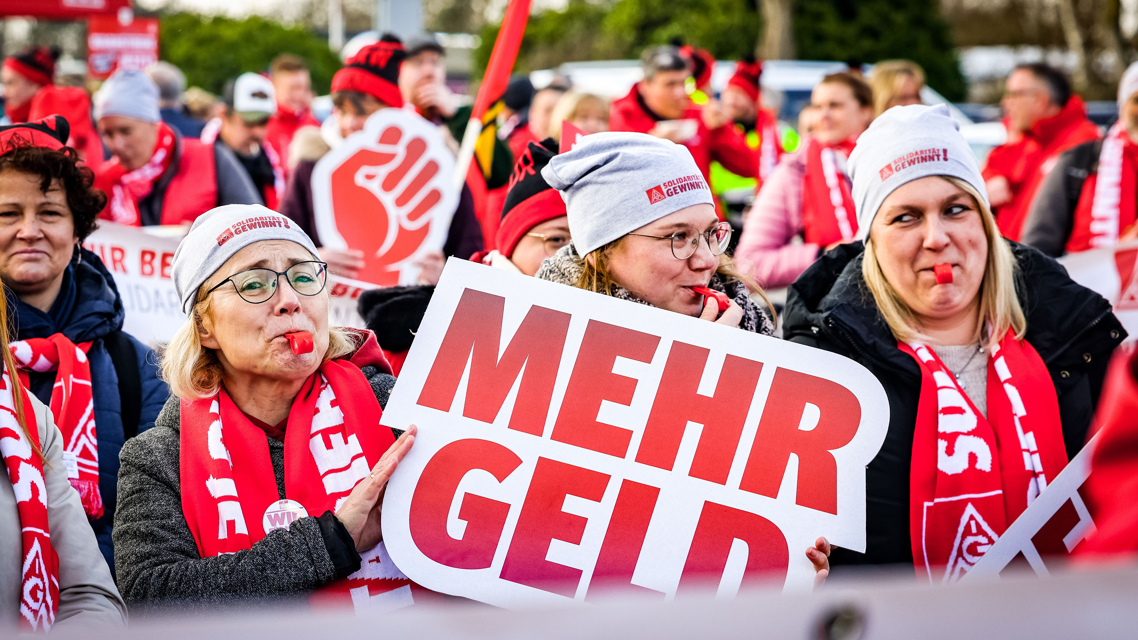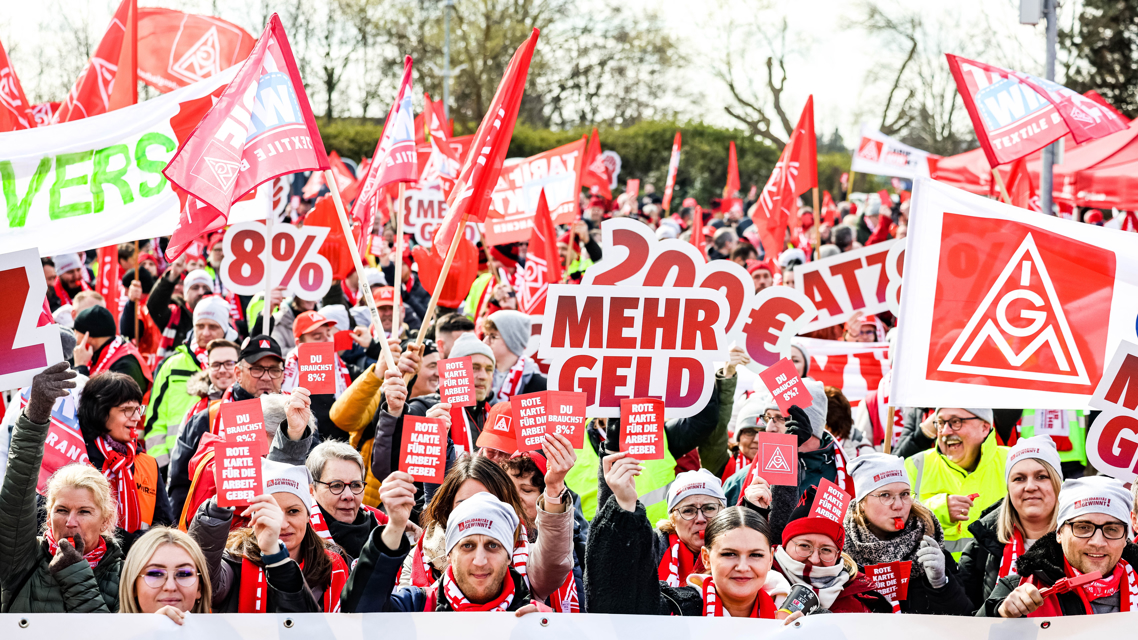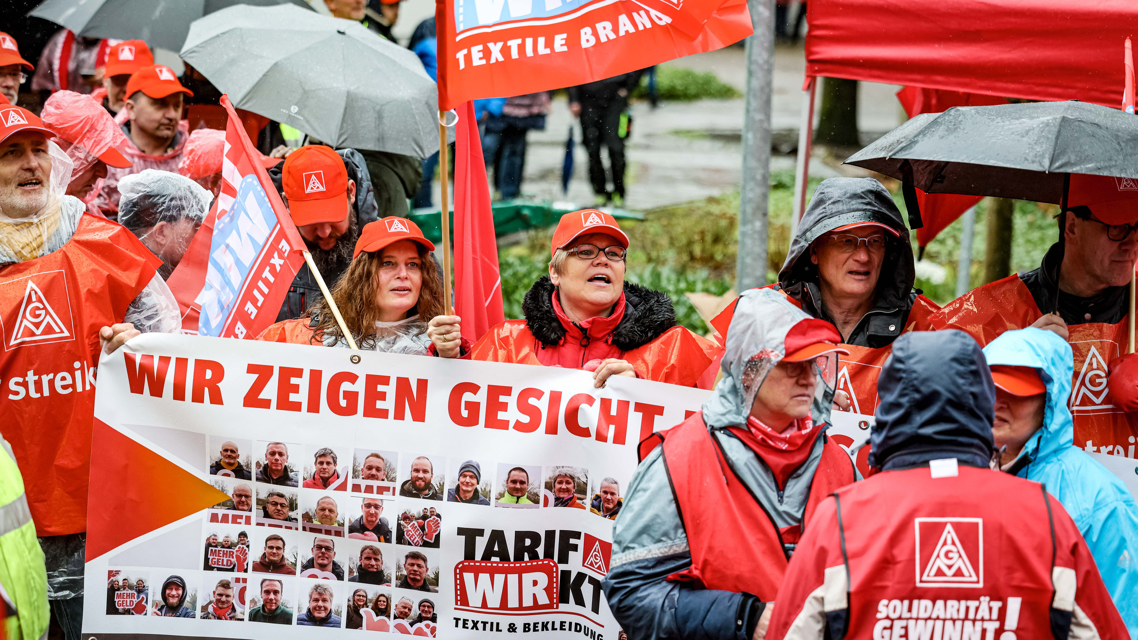According to the agreement, the approximately 100,000 workers will receive a pay rise of 4.8 per cent from October 2023 and a further 3.3 per cent from September 2024 - a total of 8.1 per cent. Wages will increase by at least 130 euros in the first step and by at least 100 euros in the second step, which is why the percentage increase is even higher in the lower wage groups. In addition, there will be an inflation compensation bonus of 1,500 euros, free of tax and social contributions. There will be an increase of 1,000 euros in April 2023 and a further 500 euros in April 2024, with apprentices receiving half this amount. Part-time work for older workers will also be extended and improved. The agreement will run for 24 months.
More than 24,000 workers took part in warning strikes, rallies and actions - more than at any time in the past 25 years in the sector. This record number of warning strikes coincides with a special anniversary: 2023 will be the 25th anniversary of the merger of the Textile and Clothing Workers' Union with IG Metall.
We congratulate our colleagues on this impressive victory!
One down, but more to go. Warning strikes have now begun in German car repair shops. Across Europe too, workers and their unions continue to take to the streets as wages still lag behind inflation, which is slowly falling with falling energy prices.
Despite an optimistic start to spring 2023 - Europe will avoid the worst-case scenario of an economic recession - the cost of living crisis continues to unfold across Europe. Inflation is slowly coming down as the energy prices that have driven it fall, but workers' purchasing power continues to be squeezed.
Unions are keen to point out that there is still no sign of a wage inflation spiral. What we are seeing instead is a profit-price spiral. Energy producers have increased their payouts by two-thirds, both by increasing regular payouts and by paying one-off special dividends. Meanwhile, investment is falling as companies prefer to plough back profits and wait for public support for much-needed green investment.
It is clear, therefore, that trade unions will continue to be at the forefront of the fight for social justice and for a fairer redistribution of profits to the workers who helped create them. With its 'Together. In Action. For Higher Wages' campaign, industriAll Europe has given a European voice to this struggle. The demands of this campaign continue to be the industrial workers' response to the cost of living crisis and they are more valid than ever.


